

Arranging a DNA testing appointment in the United States can be both intriguing and nerve-wracking. At its core, the process involves booking a time with a laboratory or clinic where your DNA sample—for example, a cheek swab or saliva—will be collected, securely identified, and processed for analysis. While the reasons for booking might range from uncovering ancestry information to confirming biological relationships, the journey from appointment scheduling to receiving results follows a series of professionally coordinated steps.
When you prepare for a DNA testing appointment, you encounter a regulated process built to ensure proper identification, privacy, and accuracy from start to finish. Many facilities require government-issued identification, clear explanation of consent, and a discussion about what the results might mean. Typically, an appointment will be scheduled either online or by phone, after which the participant visits a dedicated testing location—sometimes a clinic, mobile unit, or even a hospital-based genetic laboratory.
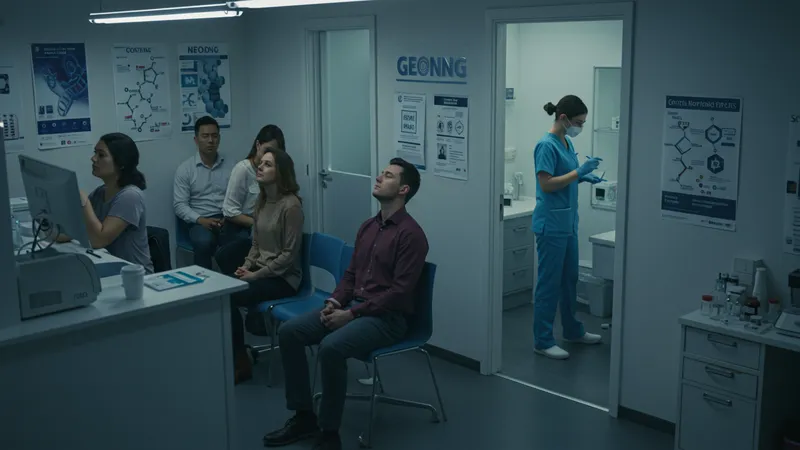
Comparing these national providers, you’ll notice differences in price, location availability, and types of DNA tests offered. Quest Diagnostics and Labcorp both operate extensive lab networks, making scheduling appointments convenient across the United States. DNA Diagnostics Center (DDC) specializes in legal testing often required for immigration or court purposes and offers robust documentation protocols. All require advance booking for walk-in or drive-through sample collection, with appointments confirmed via email or text message.
One notable benefit of booking a testing appointment, rather than opting for at-home kits, is the assurance of legally defensible chain-of-custody protocols in the United States. Clinics verify identities in-person, oversee sample collection, and maintain evidence-grade documentation—requirements for legal, immigration, or court-ordered cases. Labs like Quest and Labcorp also guarantee confidentiality in accordance with federal guidelines such as HIPAA, which protect DNA data against unauthorized access or misuse.
Booking policies differ from provider to provider—Quest Diagnostics typically allows online appointment management, including rescheduling and cancellations, while DDC might require a phone call for legal test bookings to ensure all paperwork is prepared. It’s essential to check each provider’s website for documentation requirements or possible additional fees before scheduling your visit. Most labs clearly outline what forms of ID you’ll need and what to avoid prior to your appointment (like eating, drinking, or smoking).
DNA testing services continue to expand across the United States, serving both individual curiosity and legal necessities. Booking an appointment is more than just reserving a date; it’s a blend of logistics, privacy considerations, and compliance with state and federal regulations. The deeper details reveal even more valuable insights ahead—especially for those curious about the step-by-step appointment experience, privacy safeguards, and the latest advancements in DNA sample analysis.
Each DNA testing provider in the United States implements a structured appointment booking system designed to optimize efficiency and accuracy. For instance, Quest Diagnostics and Labcorp both offer online access points where users can find test locations, select a time, and input identification details before confirming. DNA Diagnostics Center (DDC), specializing in legal cases, typically requires a phone scheduling process to ensure legal consent forms and documentation match court standards.
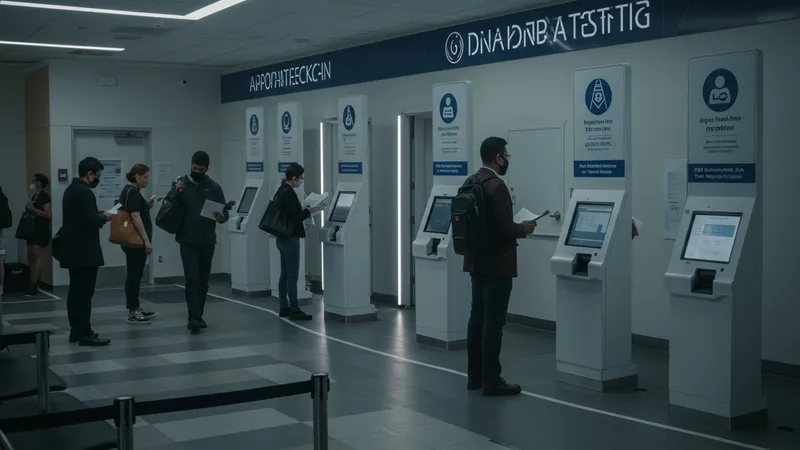
After booking, participants usually receive a confirmation email detailing what to bring—such as a driver’s license or passport—as well as specific instructions. These may include dietary restrictions before sample collection, directions to the test center, and time estimates for the visit. Unlike walk-in clinics, most DNA testing facilities adhere strictly to pre-set appointment windows, minimizing wait times and supporting social distancing policies where necessary.
Same-day or next-day appointments are becoming more available as demand for fast DNA testing increases. Larger providers may even offer weekend slots in metropolitan areas. The variety of available times accommodates everything from urgent legal court orders to routine ancestry curiosity. Each provider updates their appointment calendar daily, ensuring accurate reflection of open slots.
Appointment rescheduling is generally straightforward, but policies vary by provider. For example, Labcorp’s self-service portal allows for easy changes, while DDC’s stringent legal protocols may require direct communication. Participants are always advised to read confirmation emails closely—failure to follow instructions or missing the appointment could result in extra fees or the need to rebook, potentially delaying your results.
The sample collection process is a key focus of every DNA testing appointment in the United States. The most common method is a quick cheek swab, though blood or saliva samples are sometimes used for specific analyses. Whatever the method, a certified technician or nurse typically handles the procedure to preserve the sample’s integrity and ensure a secure chain of custody.
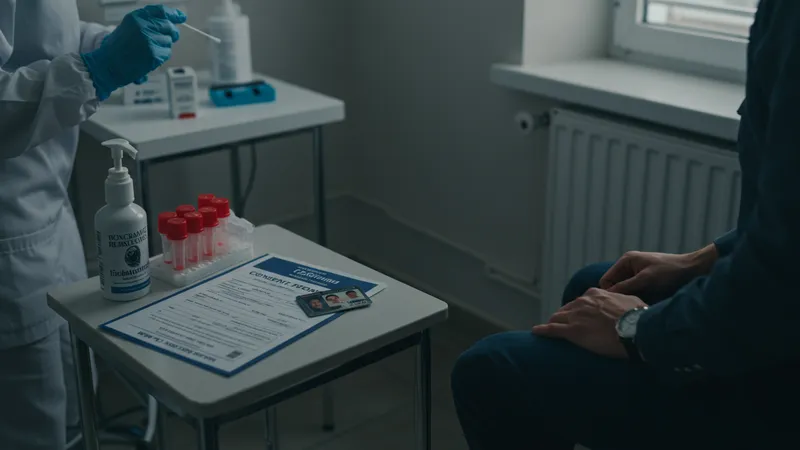
Appointment participants can expect a private setting for sample collection, often in a dedicated clinic room or mobile testing van. Each patient’s identity is confirmed using government-issued identification, and consent forms are completed before the sample is taken. In court-ordered or immigration cases—common with DDC—an additional witness or notary may be present to increase legal validity.
All equipment used—swabs, sample containers, gloves—is new and disposed of following each collection, maintaining hygiene and cross-contamination safeguards. The technician usually provides a brief explanation of what will happen and answers any remaining questions about the DNA collection. The entire process, from arrival to completion, often takes less than 30 minutes for standard appointments at Quest, Labcorp, or DDC locations.
After the collection, the labeled sample is sealed and logged for transport to the accredited laboratory. Tracking documentation accompanies the sample at every step—a standard legal requirement in the United States when results may be submitted as evidence. This meticulous approach ensures both result accuracy and participant confidence in the entire testing workflow.
One major reason many in the United States opt to book DNA appointments through national providers is the careful attention paid to privacy and legal standards. All three providers—Quest Diagnostics, Labcorp, and DDC—adhere to regulations set by agencies such as the Department of Health and Human Services and are compliant with HIPAA. This means every sample collected and result reported follows rules designed to protect client privacy at every stage.
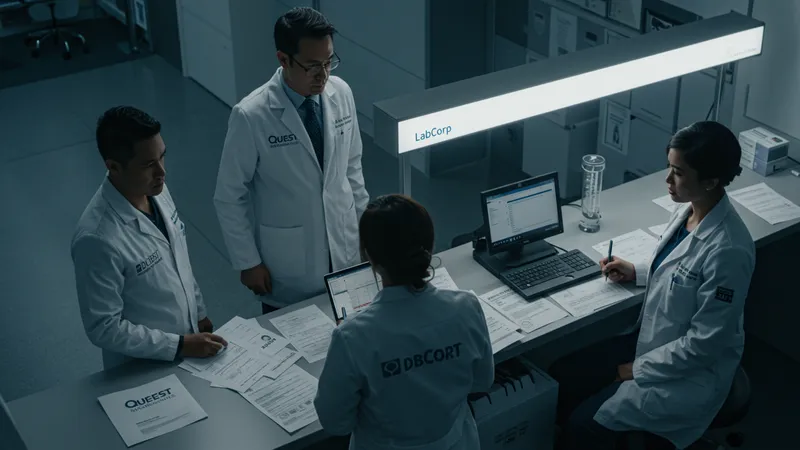
Identity verification, consent, and chain-of-custody documentation distinguish in-person appointments from at-home kits, particularly when results have legal significance. For instance, DDC’s legal tests involve extra documentation steps, while Quest and Labcorp enforce strict sample labeling and transport procedures. These protocols help ensure that the test results are admissible in court or for government documentation purposes.
United States laws emphasize that DNA results must be released only to officially authorized individuals or agencies. Providers require photo ID and signed consents before any information is shared. Data encryption, secure storage, and internal access controls are standard at labs such as Quest and Labcorp, further safeguarding sensitive genetic data.
In case of disputes or court challenges, having booked your DNA test through a recognized provider means the laboratory can provide detailed records of every step—from appointment booking to sample analysis. This makes results more likely to be accepted by U.S. courts, immigration officials, or other authorities, giving peace of mind to participants involved in complex legal matters.
Once the appointment and sample collection are complete, results are typically processed within a few business days to two weeks, depending on the complexity of the test and provider. Providers like Quest Diagnostics and Labcorp offer secure online portals where clients can access results directly, while DDC may arrange for certified hard copies or secure digital delivery if the test has legal standing.
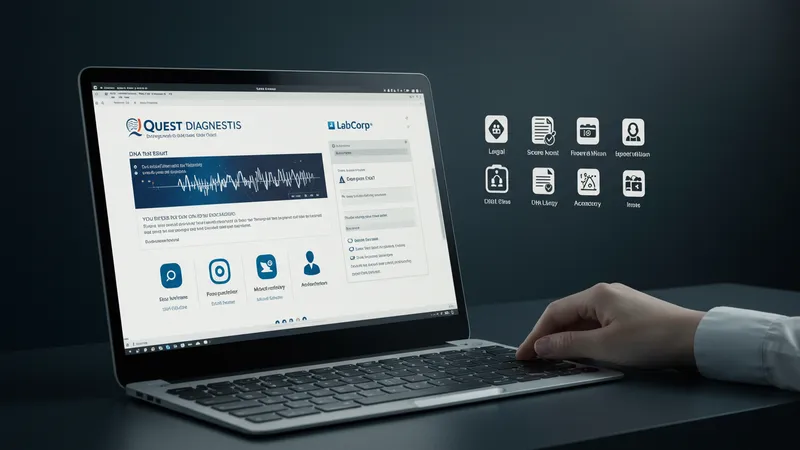
For standard relationship or ancestry testing, results are usually straightforward and accompanied by a plain-language explanation. Legal DNA tests include additional documentation verifying the chain of custody and the identity of each participant, clearly labeled with provider credentials and laboratory certifications. Providers are available for post-result consultations to clarify findings or explain next steps if requested.
Thousands of DNA testing appointments are conducted yearly across the United States, and providers invest continually in improving result turnaround and client experience. Privacy is upheld at every stage, with physical copies of results typically mailed in sealed envelopes and online results protected behind layers of identity verification and encryption protocols.
For those who needed a DNA test to meet a legal deadline, such as a court hearing or immigration application, proper appointment booking and adherence to provider protocols means results are far likelier to be accepted without challenge. Ultimately, the DNA testing appointment process is crafted to deliver reliable, confidential answers with efficiency and professionalism from start to finish.